In May 2022 the Erasmus+ training “Youth is Stranger than Fiction” was organized by Šiauliai County Povilas Višinskis Public Library (ŠAVB). Representatives of libraries from the cities of Tallinn, Tartu, Viljandi, and Silameje (Estonia), Jelgava city library and its branches (Latvia), and Šiauliai county libraries took part in the training. The library specialists from the Baltic countries who gathered for the training deepened their knowledge in working with youth.
Young people are one of the most important target groups for libraries, as they are their current and future visitors. For the library to remain relevant to young people, it is first necessary to identify and find out what is important and interesting for them, while understanding their cultural, informational, communicative, cognitive, and learning needs. Only after finding out the needs of the target group and their characteristics can effective methods of working with youth be applied. These insights became the starting point of the project and the program of the training.
The project training tried to bring library specialists closer to the reality of young people in Europe and the Baltic countries, to encourage them to create relevant and engaging activities for young people in their libraries. To improve the quality of library services, products, and project activities, the participants also explored the prevalent problems of young people in their cities and shared experiences and ideas on how libraries can get involved in youth work.
During the first days of the training, the participants identified the needs of the target audience and their behavioral characteristics. Library specialists analyzed examples of youth employment problems in the Baltic countries and shared their insights. Each participant could look at the problem from a different angle, using experience in his or her community. Library specialists offered various ideas on how to solve youth problems and after identifying them looked for ways to implement those ideas and achieve the desired results in their local libraries.
During the training, the organizers presented innovative and creative methods of working with young people to the participants. One of them was the Design Sprint methodology, which is used to create cultural, educational, or social products. It allows participants to go through the creative path from an idea to the creation of a product or service in a short time. This innovative methodology helped the participants to create an idea that would be based on the real needs of the target groups and would be as effective as possible.
Also, the participants got acquainted with the “Lego serious play” methodology, which is used in youth discussion and self-expression promotion activities. Thanks to it, the analyzed topics are discussed in more detail, and each participant’s contribution to the result is more meaningful and motivated. This methodology can be widely used in libraries when working with groups of young people, even without exceptional discussion skills.
According to trainer Roman Šarpanov, during the training, library specialists had the opportunity to look at library activities from a different angle: “The biggest challenge in applying these methodologies is to engage in creativity, relax fully and immerse yourself in the process, without thinking about what the final result will be. I think the participants were able to do this because we had a lot of interesting concepts and visualizations of ideas. We want to believe that these tools will be useful in library activities. And if they don’t use them, maybe they will tell others who will also be interested and want to discover something new”.
The librarians of the Baltic countries also had the opportunity to try the products and services created by ŠAVB specialists: board games, an escape room, sensory readings, and outdoor activities. The organizers wanted to show the participants that youthwork in libraries can also carried out in non-traditional ways, methods, and principles.
Library specialists also participated in a project development simulation, during which they generated ideas for projects aimed at young people. Project ideas had to correlate to the real needs of youth communities, attractiveness, and positive impact criteria. In the final “Erasmus+” training part, the projects presented by the library specialists of the Baltic countries were evaluated and the representatives of ŠAVB and the youth of the city of Šiauliai shared their feedback and advice on how these ideas might be implemented.
Training participant Karlota from Tallinn was happy to join this project: “This week was very interesting. All activities were innovative and engaging. In each session, all participants actively shared their thoughts, observations, and experiences. I had so many new ideas for what I could offer in my library that I would not have even thought about before.”
The friendship of library specialists from the Baltic countries established during the project will allow them to continue to cooperate, share their ideas and experiences, and initiate joint projects relevant to young people and other target groups.
The project is funded by EU programme “Erasmus+“
Text and photos by Šiauliai County Povilas Višinskis Public Library
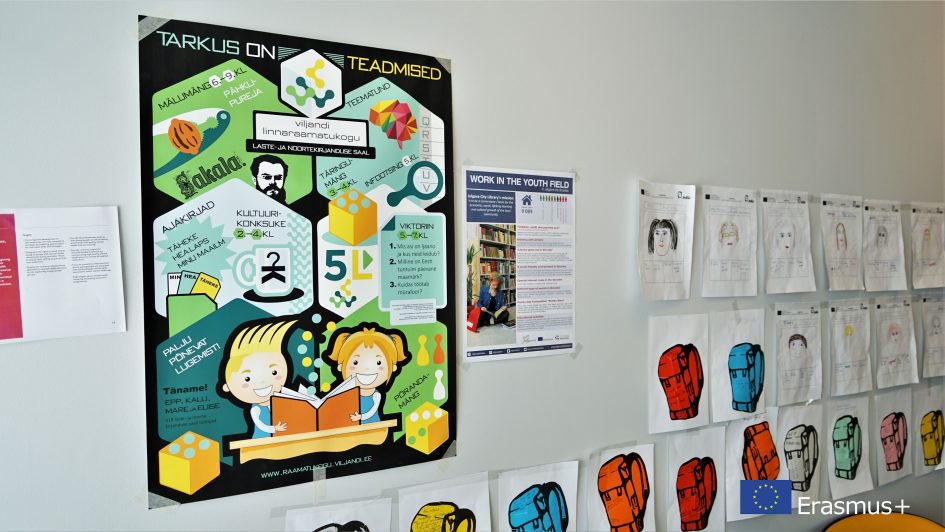
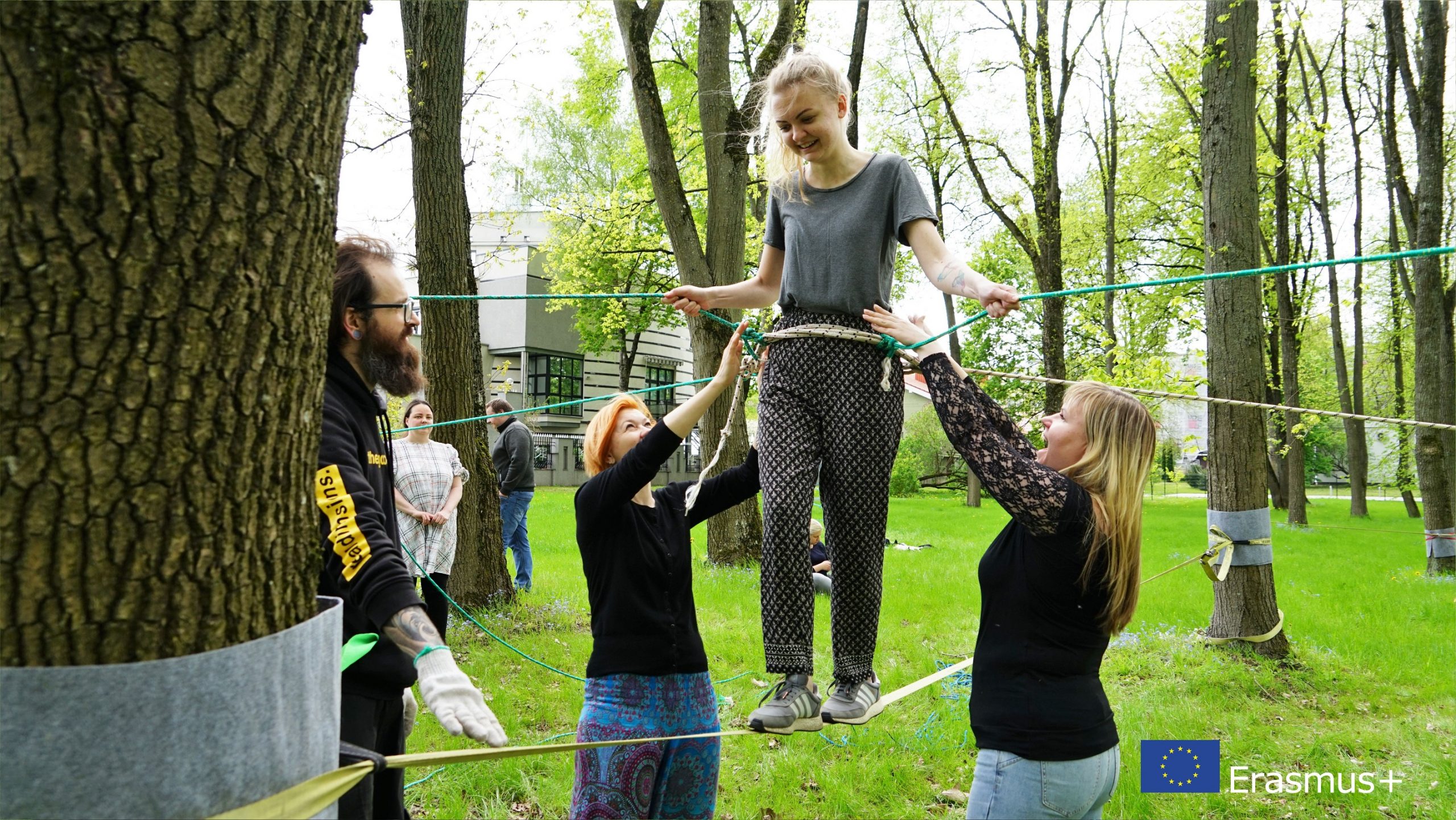
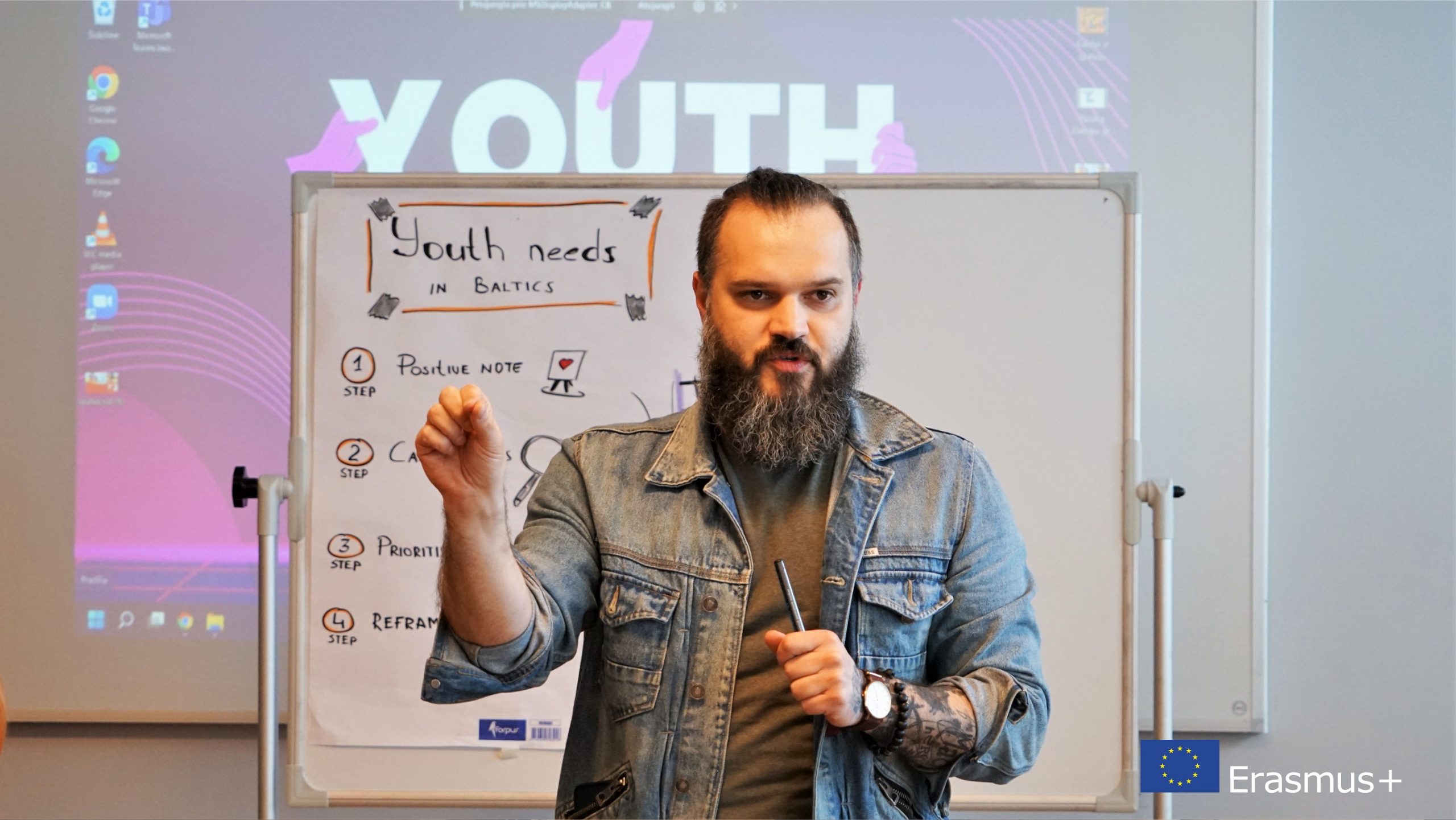
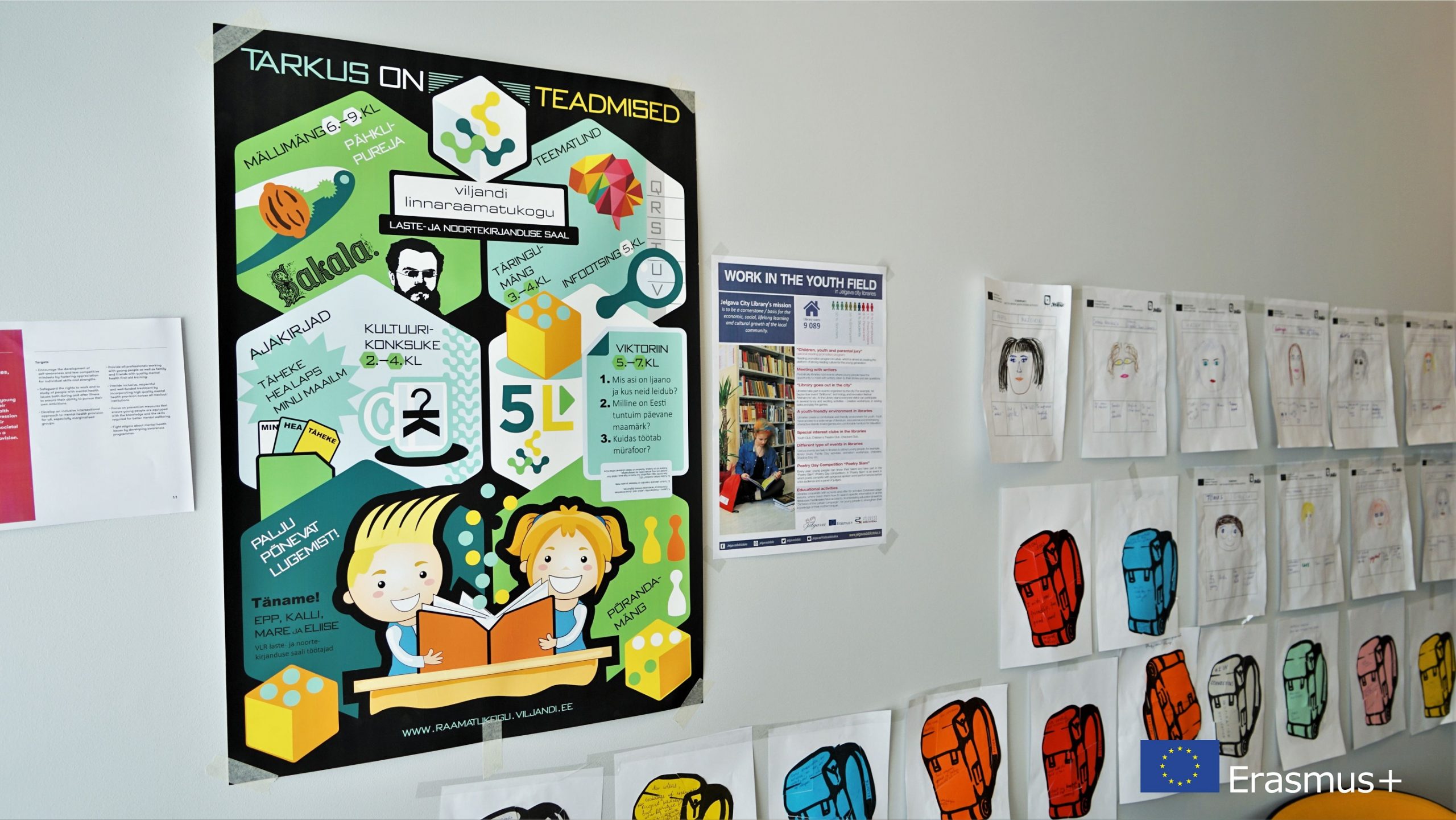
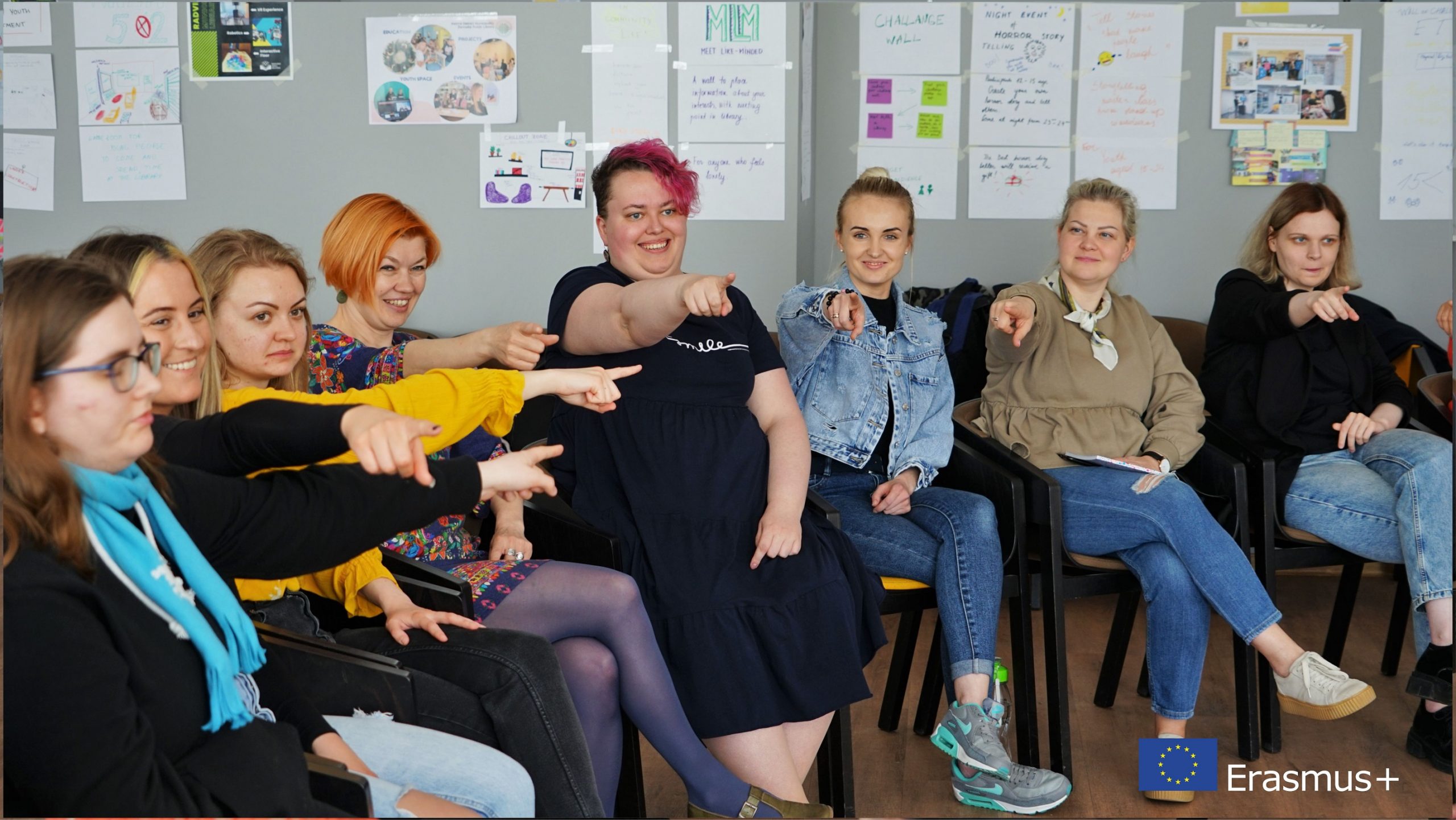
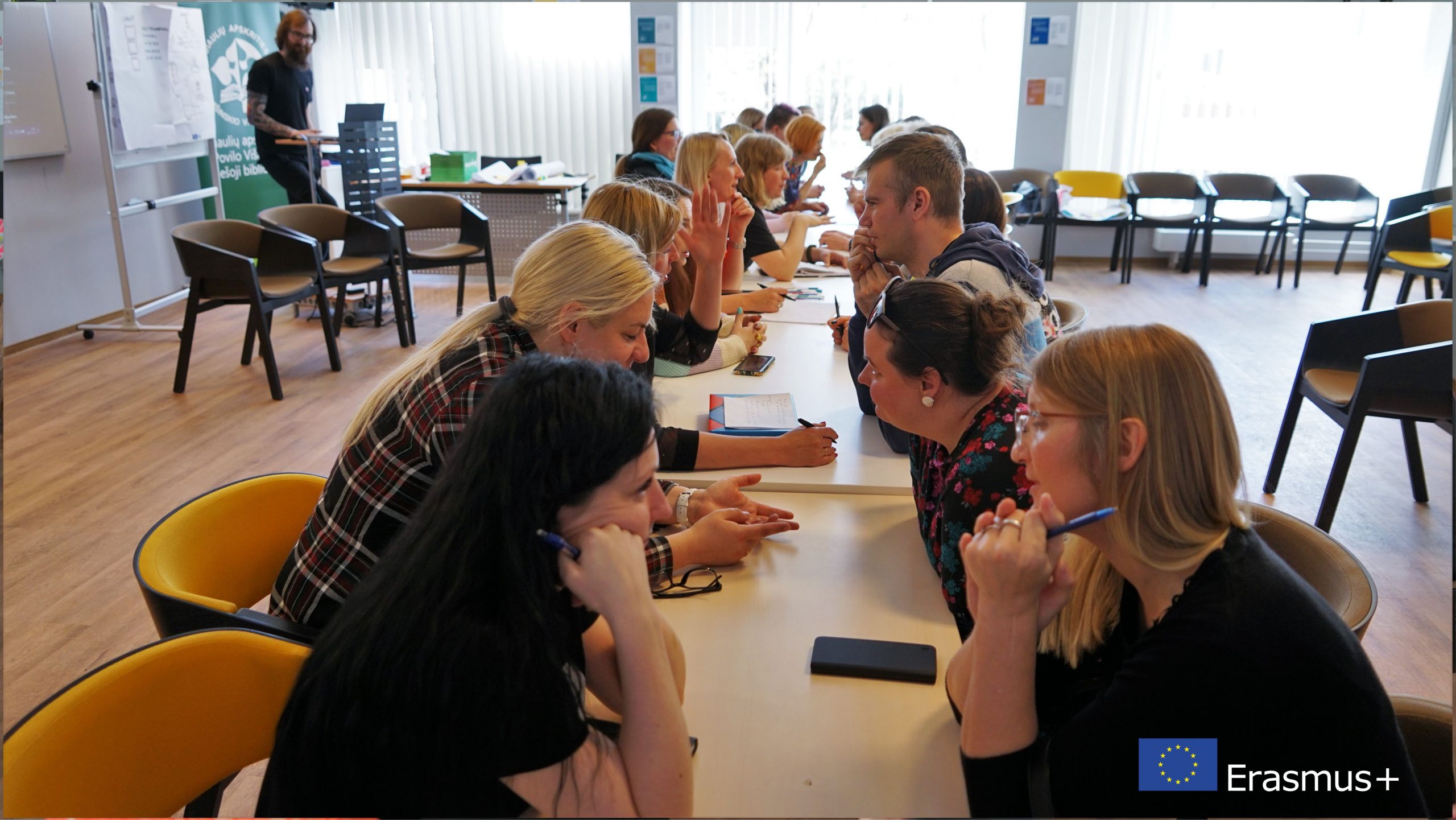
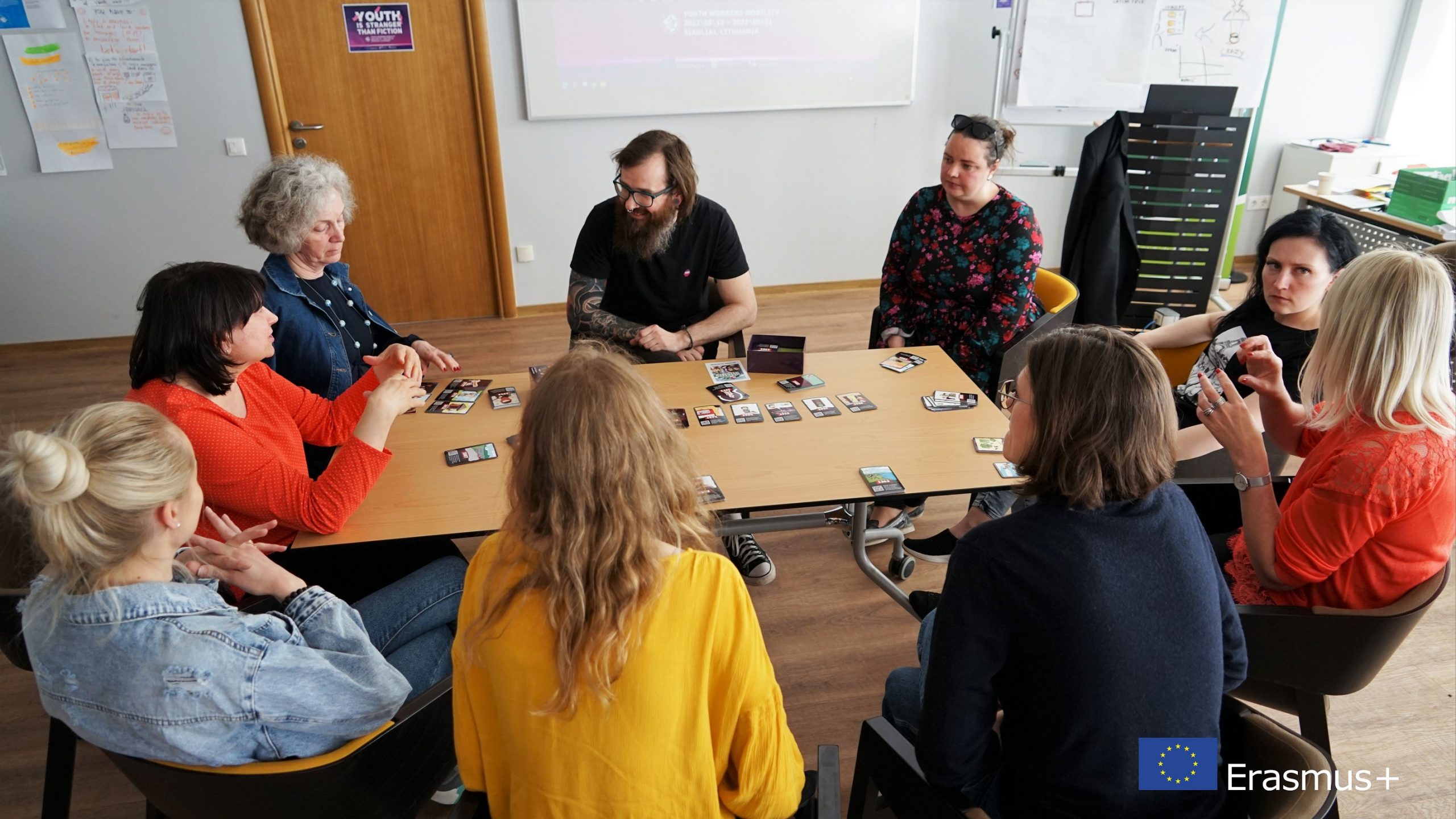
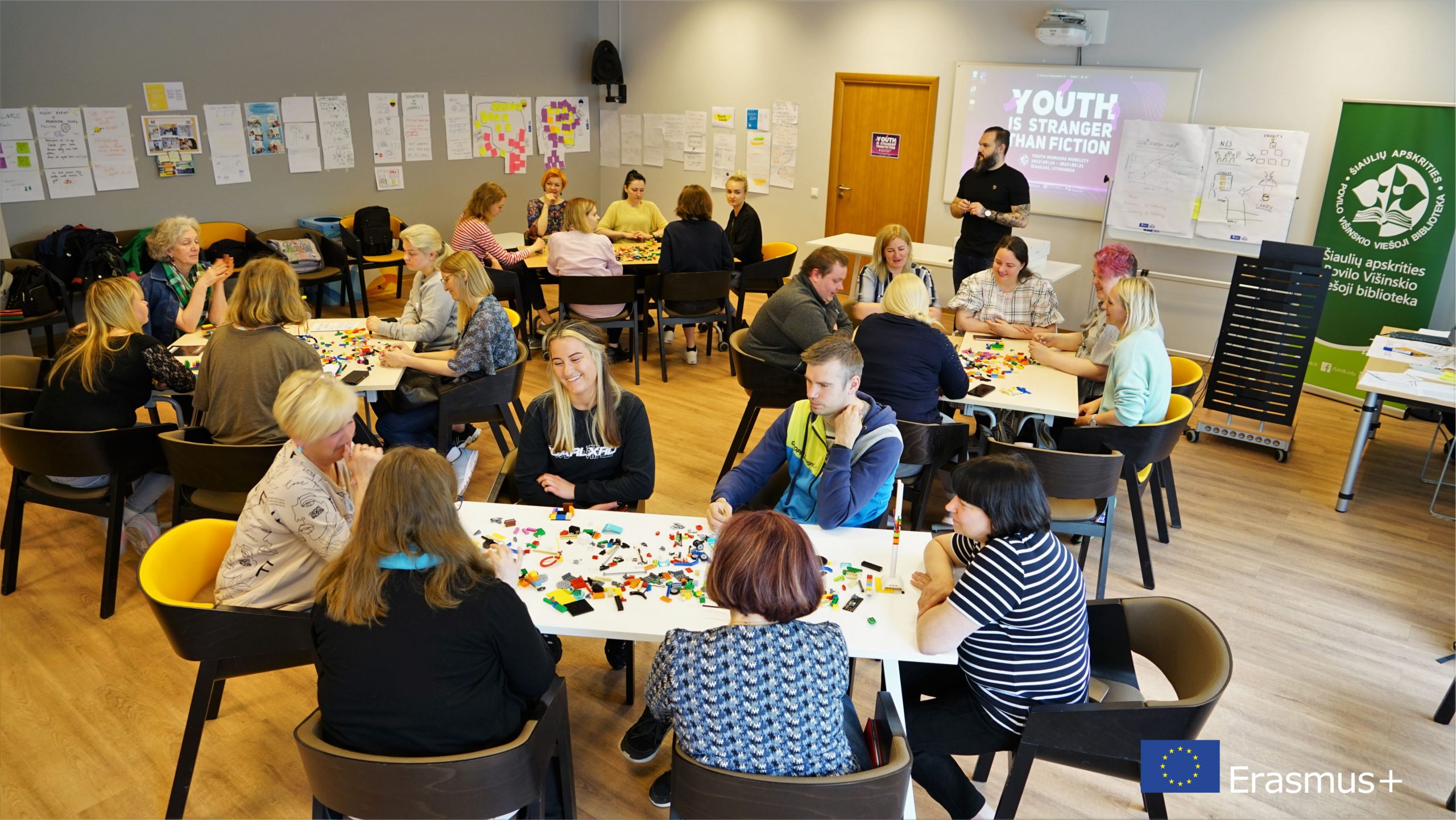
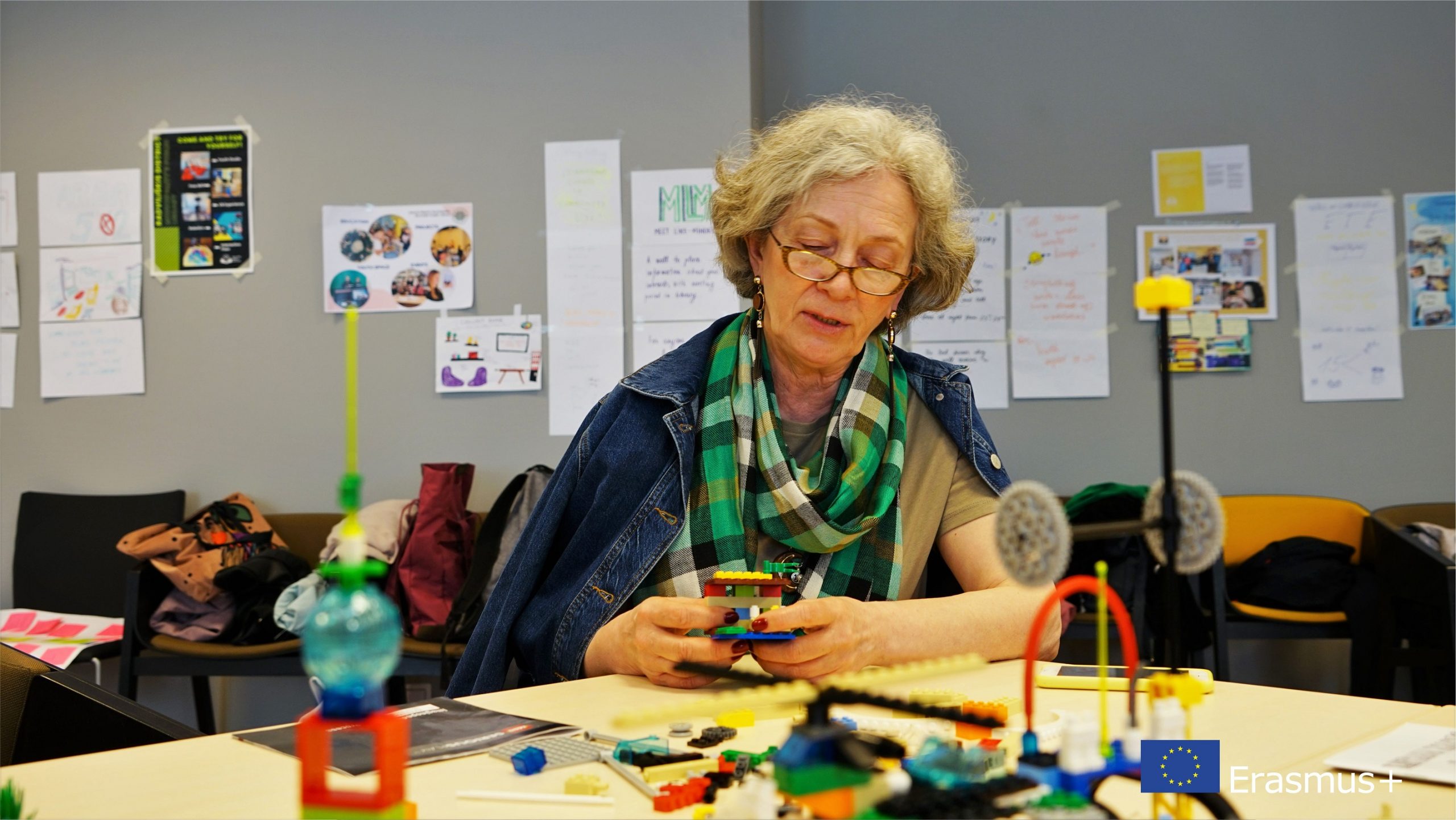
Leave a Reply